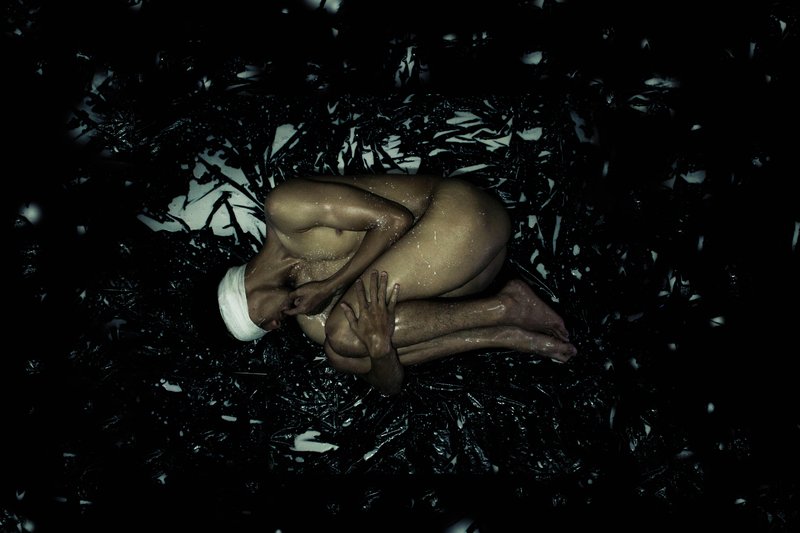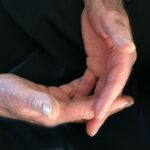This Popular Gym Supplement Might Be Quietly Helping Your Hormones
Among fitness enthusiasts, the question does creatine affect testosterone keeps popping up. For men aiming to build muscle, improve energy, and boost bedroom performance, testosterone is king. Creatine, a popular supplement for strength and power, is often linked to hormonal benefits. But is there a real connection—or just gym myth?
What Is Creatine and Why Do Men Use It?
Creatine is a naturally occurring compound found in muscle cells. It helps produce ATP, the body’s main energy currency, especially during high-intensity training. Supplementing with creatine can increase muscle mass, strength, power output, and recovery. It’s one of the most researched and effective sports supplements available today. But what about its hormonal impact?
Understanding Testosterone and Its Role
Testosterone is the primary male sex hormone. It regulates libido, energy, mood, muscle mass, and fat distribution. Low testosterone levels can lead to fatigue, decreased sexual drive, reduced performance, and even depression. Naturally increasing or supporting testosterone is a major goal for many men—and some believe creatine could help.
What the Research Actually Says
Studies on creatine and testosterone have produced mixed results. One small study from 2009 showed a significant increase in dihydrotestosterone (DHT)—a potent form of testosterone—after creatine loading. However, other studies have found no measurable increase in total testosterone levels. So, what gives?
The DHT Factor
DHT is derived from testosterone and plays a strong role in sexual health, muscle development, and male pattern characteristics. The 2009 study found that men who took creatine had a 56% increase in DHT levels after 7 days, which stayed elevated with continued use. This could suggest that creatine may indirectly affect testosterone-related effects through DHT conversion.
How Creatine Might Support Testosterone Function
- Increased training volume: Better workouts can stimulate more testosterone release.
- Improved sleep and recovery: Reduced fatigue helps hormonal regulation.
- Lower stress response: Strength gains may reduce cortisol, which suppresses testosterone.
Creatine and Sexual Performance: Any Link?
Though not a libido enhancer, some users report stronger morning erections and greater confidence. This could be due to enhanced strength, vitality, and possibly DHT increase. Still, for targeted sexual benefits, natural T-boosters like those in top herbs for testosterone increase are more effective.
How Creatine Compares to Herbal Testosterone Boosters
Unlike herbs like tongkat ali or fenugreek, creatine isn’t a hormonal supplement. It supports performance more than direct hormonal output. For a combined approach, many men stack creatine with herbs for maximum impact. Learn the pros and cons of herbals in our testosterone-focused resources like what age does testosterone drop.
Myths About Creatine and Hormones
❌ Creatine causes hair loss — only if you’re predisposed to DHT sensitivity.
❌ Creatine is a steroid — not at all. It’s found in meat and produced by your body.
❌ Creatine boosts testosterone like TRT — it doesn’t. It may support it indirectly.
Signs Creatine Is Working for You
If you notice better performance in the gym, improved recovery, and a slight uptick in sexual energy, it may be enhancing your overall vitality. Still, it’s not a fix-all. Pairing it with sleep, resistance training, and strategic supplements is the best way to get real results.
When to Avoid Creatine
If you’re already experiencing high DHT sensitivity (e.g., rapid hair loss or acne), or if you’re not training consistently, creatine might offer limited benefits. Always pair it with a structured fitness plan and healthy lifestyle habits. For specific bedroom performance goals, learn how to make erection last during condom use or explore confidence topics like penis size vs sexual satisfaction.
Conclusion
So, does creatine affect testosterone? The short answer: indirectly, yes—but not like traditional testosterone boosters. Its strength-enhancing and DHT-supporting effects can contribute to better energy, body composition, and possibly bedroom confidence. For men looking to optimize performance in and out of the gym, creatine belongs in your stack.
Explore the full natural enhancement protocol here and find your edge today.
Synergy: Creatine + Testosterone-Boosting Lifestyle
Creatine works best when paired with habits that naturally enhance testosterone. These include heavy compound lifting, proper sleep hygiene, reduced sugar intake, and active stress management. Men who train intensely while using creatine may experience temporary hormonal boosts post-workout. When paired with herbs like tongkat ali and ashwagandha, the benefits multiply. Explore the synergy in our deep-dive on top herbs for testosterone increase.
What Age Does Testosterone Drop—and Can Creatine Help?
Testosterone typically begins to decline around age 30, dropping roughly 1% per year. This decline impacts strength, libido, focus, and mood. Learn more in our breakdown of what age does testosterone drop. While creatine doesn’t stop this decline, it can support energy and muscle mass—two things that buffer against the symptoms of lower testosterone. Men in their 40s and 50s using creatine often report more stamina and better physical presence.
Does Creatine Affect Erectile Function?
There is no direct evidence linking creatine to improved erections, but indirect mechanisms exist. Improved muscle tone and blood flow, increased confidence, and elevated DHT can all support arousal. For targeted erection strength, combine creatine with sexual performance strategies such as those in how to make erection last during condom use. For many, the mix of physical conditioning and mental readiness is the real game-changer.
How to Use Creatine for Maximum Benefit
- Loading phase (optional): 20g/day for 5–7 days, divided into 4 doses
- Maintenance phase: 3–5g/day with water or post-workout shake
- Cycle: Use for 8–12 weeks, then take 1–2 weeks off if needed
- Hydration: Drink plenty of water to support muscle saturation
Consistency is key. Many men give up after one week. Stick to the protocol for a month and assess changes in strength, recovery, and mental sharpness.
Real Stories: What Men Are Saying
Jordan, 36: “I noticed more endurance in the gym and better mood throughout the day. I don’t know if my testosterone changed, but I feel stronger overall.”
Luis, 41: “My sex drive improved slightly, probably from the DHT effect. I stacked it with tongkat ali and felt like I was back in my twenties.”
Devon, 28: “Creatine didn’t turn me into a beast overnight, but it gave me the edge to lift heavier. Confidence went up, and yeah, that helped in the bedroom too.”
Why Creatine Isn’t a Replacement for T-Boosters
If your testosterone is clinically low, creatine won’t solve the problem. It’s not a hormone or adaptogen. It won’t stimulate the testes or block estrogen. But it may enhance performance and masculinity when used with a complete strategy. For actual testosterone increase, herbal stacks and hormone-friendly habits are essential.
What to Pair with Creatine for Best Results
- Strength training: Stimulates testosterone naturally
- Ashwagandha: Lowers cortisol and improves vitality
- Fenugreek: Supports free testosterone
- Healthy fats: Cholesterol is a testosterone precursor
- Sleep optimization: Deep sleep boosts hormone output
Side Effects and Precautions
Creatine is well tolerated by most men. Minor side effects include bloating or water retention, especially in the loading phase. There is no credible evidence linking creatine to kidney damage in healthy users. Still, stay hydrated and consult your doctor if you have pre-existing kidney issues. Avoid overdosing—more is not better.
Does Creatine Affect Mental Health?
Interestingly, yes. Some studies show creatine may help with cognitive performance and even mood stabilization. Better physical performance often leads to improved confidence, reduced anxiety, and higher self-esteem. All of these support healthy testosterone levels. Creatine is being researched as a support for depression and neurological function too.
When Creatine Isn’t Worth It
If you don’t train regularly, eat poorly, or lack sleep, creatine won’t do much. It’s not a magic solution. If you’re struggling with energy, drive, or bedroom performance and aren’t lifting or eating clean, start there. Supplementation should come after foundation.
Conclusion
Does creatine affect testosterone? The bottom line: it can support it indirectly through strength, energy, and possibly DHT increase. It’s not a cure or hormone hack, but it’s an effective tool in your male performance toolkit. Combined with sleep, training, and testosterone-friendly supplements, it amplifies your results—inside and outside the gym.
Creatine vs Mechanical Enhancers: Which Builds More Confidence?
Some men compare creatine to devices like pumps or extenders. But there’s a key difference—creatine builds real strength and performance, not temporary size changes. While tools like those discussed in penis pump vs extender results may offer visible effects, creatine works from the inside out. For long-term masculine confidence, building muscle, stamina, and mental clarity is far more valuable than surface-level changes.









